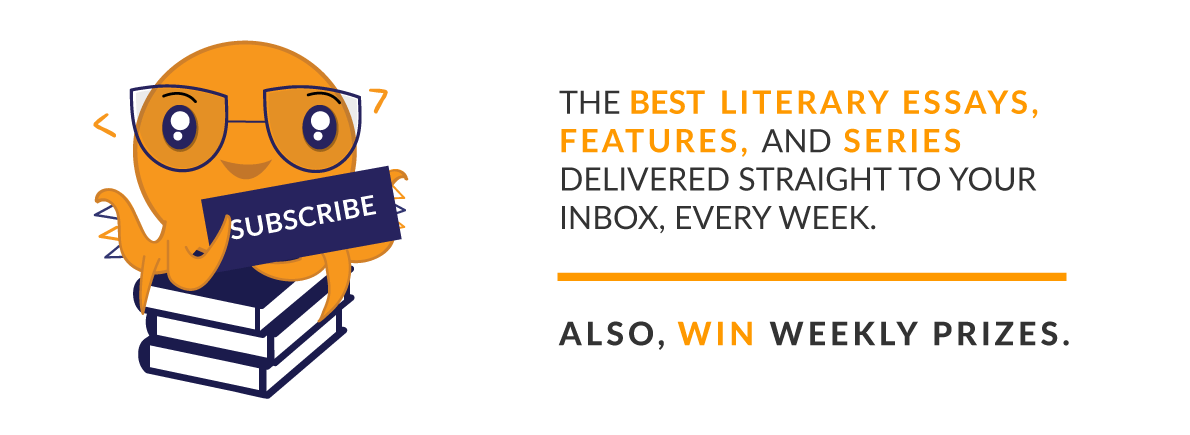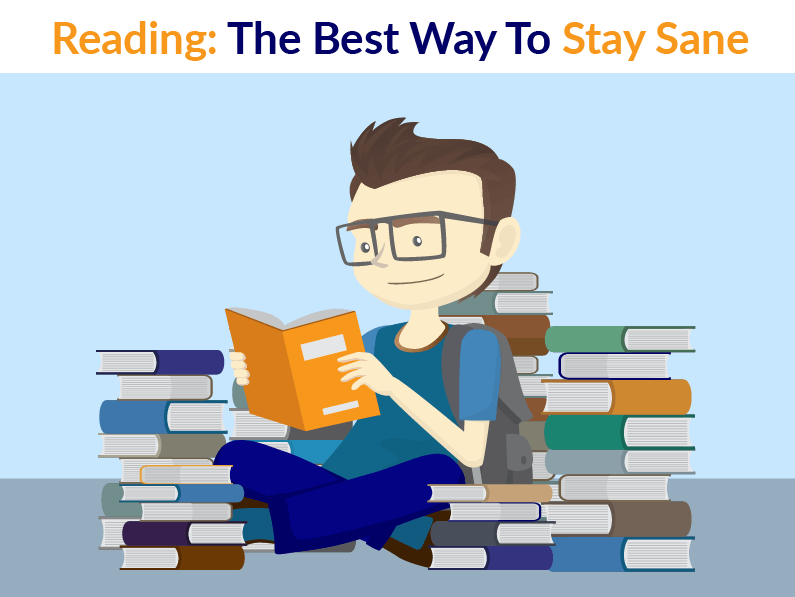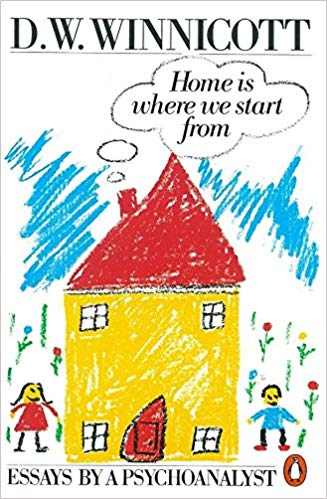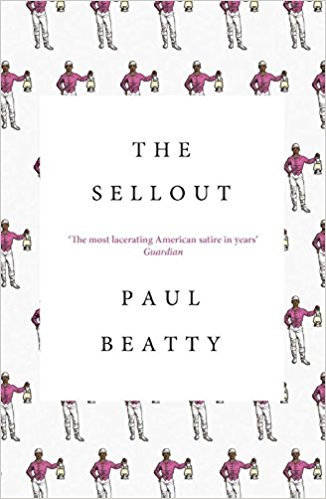Essay
Reading: The Best Way To Stay Sane

Sayali Palekar
October 25, 2018
I fail – over and over again – to comprehend how literature can give us an experience without giving us an experience, bring us joy without bringing us joy, and love us without loving us. How it uses the very absence of these very things – experience, joy, and love – to fulfil us with the illusion of their presence. It scares me, the effect a book can have on us. But this effect can save us – from ourselves, from other people, and from the all the things in between and around.
It’s fair to say that literature is overprescribed as an antidote. Or that it provides the correct path to take in when it’s clear that one is headed the wrong way. Anyone who has read a good piece of literature will agree that pinning all your hopes (and your depression) onto a devoured paperback’s wrinkled cover is the best thing to be do: to root for Jane Austen’s Lizzy Bennet or Paul Beatty’s Me, wishing for your own happiness even as you wish with every passing page for theirs. But it still stands as a worthwhile activity to think about this force with which we approach our books, the force of our small tragedies and unremarkable defeats. It’s worthwhile because we’ve only just now begun to think about happiness, and this is just one more way to keep on doing it.
The conversation around mental and emotional health is finally getting the attention it always deserved. Over the past two or three years, some of us have realized and then come forward to accept that our emotional wellbeing is not roped-off from our sexuality, our politics, our family, or even the television shows we watch. As always, social media has played an incredible and incredulous role in the articulation of these issues. But the speed, the unpredictability, the pressure to outrun time, the congestion of innumerable voices, the sheer volume of the commentary, and most importantly, our massive desire to be favourable at all times – these factors can work against the needs of a happy mind, they can work against happiness. And this is only one of the many crucial junctures at which (the enjoyment of) literature can step in as a vastly different alternative.
Our plight as individuals today is a sad one. And there’s nothing about reading a book (or watching a film and listening to music) that can alter this plight. As with any other generation, we’re confronted with a bleak future, and the only thing we can do is approach it. Every day is a battle and every night is a cry. Appreciation, however, is key. The ability to appreciate, without necessarily conducting an inquiry, why we are the way we are, is something reading can help us cultivate. And by appreciation here, I do mean a certain understanding.
Carl Jung wrote in The Undiscovered Self, “The positive advantages of knowledge work specifically to the disadvantage of understanding.” In other words, when it comes to the individual human being, there’s something lying in wait there that cannot be designated as a problem, cannot beg for a solution, cannot be appreciated by knowledge, and can only be viewed for what it is. To find out why one reads may or may not be a fruitful occupation for every reader. But that one reads should not be an unremarkable fact. Literature has everything to do with knowledge and with power, and one of its greatest achievements has always been to point at the nullity that lies at the core of both. As we hunger after the designated markers of success and happiness, trying to open one door after another, the books we read will show us – if we’re lucky – that there’s nothing behind the door, except perhaps another door. I firmly believe it’s a misconception that books can bring happiness to a person who is missing it. But an education consisting of good books is a fortification. It is not a way out of this world in which we are battered by opinions, betrayals, and failures. It only makes the ground on which we stand stronger. Perhaps this has more to do with the books I choose to read, but it has never been about the escape – unless the escape is a roundabout to reality (which it is).
I thought I should write this piece because I’ve been made to think a lot about emotional well-being over the past two months. I went back to Home is Where We Start From, a fabulous collection of essays by Donald W. Winnicott, and in it, I revisited one of my favourite sentences: “Health is tolerant of ill-health”. And for me, part of staying healthy means making time to read. Reading should remain the hermeneutic device even when it concerns our own lives and bodies: the many lives we live, the many bodies we inhabit, the many truths we tell ourselves concerning these minds and fleshes. Now more than ever, we need to be good readers of our selves. The world will always go on about reality and about proof, safely demanding the latter from under the shroud of the former. And the world will be right to do that, to pave our roads with this yellow brick and lead us to an emerald city that isn’t even emerald. But that doesn’t mean we give up on what we understand, what we feel, what is there inside of us.
Reading – both our selves and our books – is the only detour to arrive upon that understanding, that feeling, that insight. Whether you read Maria Popova’s newsletters or Anne Fadiman’s essays, whether you read Ruskin Bond’s literary confessions or Francine Prose’s articles – all of it will be for naught if you don’t own up to your desires as a reader, if you don’t discover your own self for the absence it is. To use the very original metaphor of the Fall, you will always be awake and you will always stay fallen – there’s no mutual exclusivity between the two. Awareness is the most fantastic fall, and it’s our duty as readers to appreciate the abyss into which we’ve thrown ourselves. Only then can we help ourselves, and begin to think of helping others. Health is tolerant of ill-health, happiness can stand sorrow, we can bear ourselves. But fortification is a must. And here’s a concluding request to try and find it – as much as possible – inside a book.
Illustration based on image from Freepik.
Have you found that reading helps you stay sane? Which book has helped you when you’ve needed it most? Share your thoughts in the comments below.


Sayali Palekar
Sayali was born in Bombay and is a student of English and German. Her chief interest lies in finding out if words are ever enough. She can be reached at palekarsayali@gmail.com.






Check your inbox to confirm your subscription
We hate spam as much as you hate spoilers!